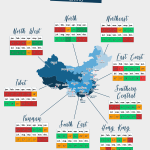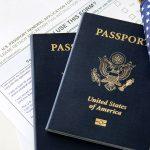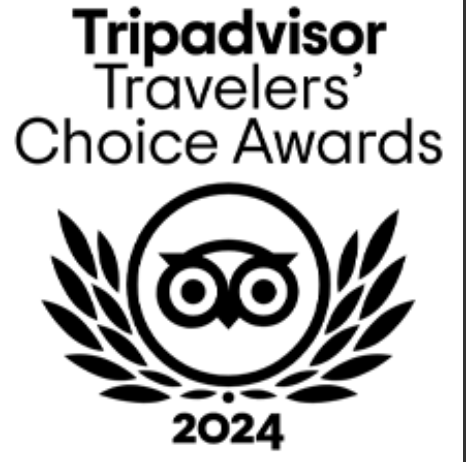Believe it or not, the planet is a fairly peaceful place. Most people – no matter their culture, income, or strange language – are friendly and will only do their utterly most to help you. But then there are those few who are trying to take advantage of vulnerable travellers. Everyone can fall victim to their tricks but being aware of the most well-known travel scams will steer you clear of the worst.
When arriving in an unfamiliar city, you should be aware of the scams and traps, as scams you find all over the world in big cities.
Always be careful with what you do and with who you can trust.
Although Beijing is one of the greatest capital cities of the world, especially the 2008 Olympics, there are still something bad you should pay attention and avoid from.
Hereunder are the top tourist scams and traps that usually happening in the metropolis. Just Watch Out!

Never trust a “student” in Beijing who wants to practice English with you.
Here is a short scam story:
“When walking down the Wangfujing area, a girl, dressed in student suit, asked me if I wanted to go for a cup of coffee so that she could practice her English. Certainly, I had no excuse to refuse, and then she brought me into a café. The menu is incredibly expensive, a small beer for 100RMB. The bill finally was 1200RMB. That’s extremely terrible.”
In any case, never bother with someone who approaches you. Just follow this rule of thumb and you are not likely to be scammed.

At many tourist areas, you may be approached by elegant female or gentleman who will give you a free Hutong tour or something else for free. He or she will tell you something interesting about Beijing, even the Beijing history and culture. After a while chat, he or she will invite you to go for a rest at the nearby tea house. There is the scam, and you will be asked to pay hundreds or thousands of dollars.
One word of advice: never accept “services” (or other things) that are offered to you without you taking the initiative, especially around the tourist attractions.

Jumping into a taxi from the airport, your driver may try to tell you that your hotel is pretty far and that the price will be high. This kindly gent will offer to turn off his meter for an agreed upon ‘flat rate’, but you’ll probably wind up agreeing to more than twice the metered fare. Stay with the meter and keep the receipt in case you feel you have been taken advantage of.
You probably have read lots of threads on Beijing taxi and various scams have been mentioned, but that’s the past. The taxi scams usually happened before 2008 Beijing Olympics, and they didn’t apply to Beijing presently any more.
To be on the safe side, never take the taxis which are always “sharking” at the curb, instead, hail taxis off the street or jump into those which have just unloaded their passengers.

Dressing up in traditional clothes for pictures at local tourist spots can be fun and memorable. It can also be expensive if you don’t clearly negotiate the price and what the price includes. Often they will tell you after you and a friend have posted that the price negotiated was per person. Or they will tell you the price is for only the smallest size print.
Tour Scams
Practiced the world over, this common scam involves your tour stopping at places to buy souvenirs or gifts, almost always over-priced and of low quality. Never feel obliged to buy anything and stay firm under pressure.

Strolling the hutong areas is fun but can also be tiring and you might want to take in the sights from the comfort of a rickshaw. Before climbing aboard, clearly negotiate the price for the tour and what it includes-duration, price per person, point-to-point, etc. Common scams are settling on a price for a tour (e.g. RMB70) only to be told in mid-journey by your driver that this price is per person or per hour and your time is up and you’ll have to pay more. Always clearly detail how long your tour will be and where you will go.
Take one of our popular Hutong Rickshaw Tours.
Ticket Scam
When joining a tour, or being guided at a local sightseeing spot, you may be offered a higher priced ticket, including a performance that you don’t want to watch. Always ask the price of the sight-only ticket.
Tips to Avoid the Tourist Traps and Scams

You get offered a very good deal on goods from a street vendor near a tourist site. The price is not a nice neat round amount so you pay a bigger note and get your change back, so far nothing special. Well, maybe yes. This scam has two sides. First the obvious one that traders will never make deals which are not to their benefit. If a bargain sounds too good, it probably is. The second part is the actual scam, with the vendor giving back your change in counterfeit money. There is a lot of fake Chinese money in circulation (especially 50 RMB notes) and quite a few end up in the unsuspecting hands of tourists
- Over-eager and too friendly locals offering trips to museums, art galleries or tea houses must be avoid.
- If you are aware of being cheated until you have been taken to the scam spot, do not panic and just calm down. You can chuck a Y100 down and go through the huge fuss and yelling of walking away. If it is necessary, call the police 110. Sometimes, even faking to call the police usually works


























